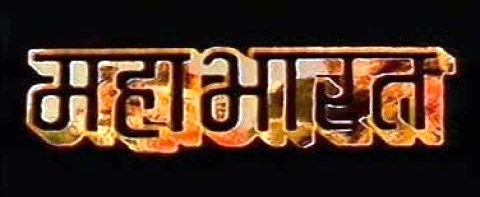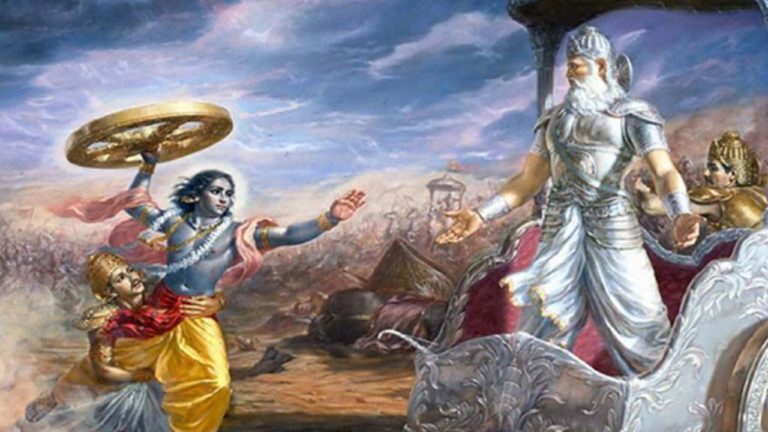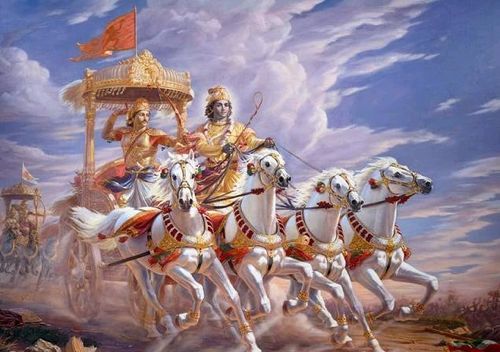Lessons from The Mahabharat
- Samridhi

In the lockdown, almost everybody would have watched Mahabharata. Well, I did too, and I didn’t take it casually just like another television program but tried to imbibe its learning. It made my soul drift towards becoming a spiritual human and more than that, inspired me to follow the path of Dharma – whose definition is far different than today’s definition of dharma as religion.
I would call it a roller coaster ride for me, but at the end of this ride, I definitely discovered myself. I found the true purpose of me being on this earth and my soul taking a rebirth. I would deal with these things further in this article.
I was intrigued by Mahabharata from the very first day, and so I watched a couple of episodes back-to-back. In my article, my spotlight would be on Gangaputra Bhishma as his character was the most fascinating for me. I watched the episodes where King Shantanu had declared Bhishma-the son of his first wife, Bhagirathi Ganga, as the Yuvraj (or to be king). Now king Shantanu wanted to marry a second wife, named Satyavati. King Shantanu was upset as she was not ready to marry him unless he promised her heirs to be the future kings. Seeing this Mahamahim Bhishma had taken his oath of sacrificing the throne and living his life as a servant of Hastinapur. From there, I saw how a person(Bhishma) can have so much love and respect for his father or family and sacrifice his whole life and future. I was surprised by his decision, but I was answered until I finished watching Mahabharata.
After Bhishma had surrendered in front of Lord Krishna and asked about his mistake, Krishna replied, “Unawareness is your mistake Mahamahim, you never understood the real meaning of dharma”. And here he mentioned the true definition of Dharma whose path if followed provides moksha or liberation to the soul or else the soul would continuously take rebirth. Unless the whole world does not come under the roof of compassion, Dharma remains incomplete. But Bhishma always thought of his family and not about the welfare of the society and that is why his oath of sacrificing the throne is also a form of selfishness. According to Krishna, if his sacrifice was Dharma, then the Mahabharata war wouldn’t have taken place. If he had understood deed(karma) and had considered his responsibility, then his soul would have attained liberation. When he took his oath, he had not seen the future and when situations changed with time, neither did Bhishma break his swear, nor did he try to make a change in the despotism of Dhritarashtra and his sons in Hastinapur. The oath which benefits the whole world has a value, but the day a person’s sacrifice and decisions start harming the world, that day breaking that decision is mandatory.

In reality, Dharma is not the name of a dead thought or tradition. Dharma is the name of life and life keeps on changing. Change is quality of life. And for change, a person has to do deeds(Karma). Bhishma, in order to not tie with the bondage of deeds, had not done any deeds(karma) in reality. Deeds or Karma means taking decisions and accepting the consequence of decisions, Bhishma was just tied to his oath and in the name of “deed”, he ran away from the responsibility of taking decisions.
There were other characters in Mahabharat who taught me a lot. I would like to throw some light on the characters of Guru Dhronacharya and Karna. Knowledge liberates a human, but his arrogance doesn’t let him attain liberation, which made Guru Dhronacharya drift from his Dharma. Dedication is surrendering yourself, your knowledge, intelligence, wisdom, wishes, hope, emotions and everything to somebody and such dedication is called devotion. When someone is devoted to someone, he moulds himself like him or her. Devotion towards a bad human being also pollutes the character of that person, like the devotion of Karna towards Duryodhana. That is why being devoted to good is necessary, which only carves out a righteous human being.
Another big lesson I learned was the futility of great expectations. Everybody desires that the people who surround them are always determined to fulfill their expectations. But expectations have the nature to not be fulfilled. Wondering why? Expectations arise in one’s thoughts and nobody else can know about it even if one has the whole capacity to fulfill somebody’s expectations. Secondly, everyone in the world is bound by their finite resources due to which fulfilling all expectations is never a possibility. Thus fulfilling these expectations turns into a continuous struggle and the relationships of humans are in the constant fight with this struggle. Lord Krishna preaches that instead of giving importance to expectations and struggles, humans should give importance to relationships and empathy in their life. If we can understand this golden rule, our lives will be filled with happiness and peace.
Mahabharat also advocates not to nurture fear. In a person’s heart always resides the kingdom of fear- the fear of destroying property or the fear of getting insulted or getting separated from their loved ones. Everybody feels having fear is natural but, Krishna says that it is not the situation or thing that gives rise to this fear. Fear is just a creation of one’s own mind anticipating the future- It actually does not correlate with reality. If we can comprehend the fact that fear is just an imagination, it would be easier for humans to live without fear.
Let me now share my learnings about the mortal flesh and immortal souls of humans. Neither is one’s body his identity nor his relations’ roots. One’s behavior, his nature and his deeds are his identities. Human life is just a mere harmony of visible and invisible entities. Like a human being uses a device, a soul uses a device called body. It experiences the joys and sorrows with the body as a medium, but the soul is not the body. A body can be destroyed, but a soul cannot be. The soul can neither be pierced by weapons nor burnt by fire, neither can water desolate it nor can the wind dry it. Even though a soul resides in the body, it is still immortal. The soul is omnipresent, intangible, and stable. It is eternal. Just as a man discards old garments and wears new ones, similarly the soul leaves the old body and assumes a new body time and again. Lord Krishna emphasizes that one should identify oneself as a soul.
The body alone does not make a human, so let us analyze the basic constituents of a human. When a fragment of god combines with nature, a human being comes to life. So the soul is God and devotion towards your soul is devotion towards ” God”. Surrendering the whole of yourself to God leads your soul’s way towards Moksha. Once a person knows what soul is, he can easily follow the path of karma, devotion, compassion and most importantly Dharma, so that his soul attains liberation.
So this was part of my journey of discovering life, Dharma, responsibilities, my purpose to live, and most importantly my soul. “Pick up ur bow and conquer the world, do your Karma and the rest would follow”, said Krishna. Let this Janmashthami awaken the right in you and let us celebrate Krishna’s teachings which are still simple, universal and relevant even today.

From the Dummywriter:
In my perception, this world needs to dive in an ocean of good values,ethics and morals. The Covid induced Lockdown gave me an opportunity to learn from one of the greatest Indian Epic- The Mahabharat and I thought of sharing my journey through my article. The ‘Mother of all wars and rivalries’ as it is so called, had so many incidences to acquire knowledge that it was unachievable for me to list them all. It would mean a lot to me if you could share your favorite character or value from Mahabharat in the comments below.
To read other Literary articles, Click here
To read other articles related to Covid-19, Click here
To read other articles on this website, Click here
- We shall notify you about our new posts on your email provided. You may choose to unsubscribe anytime you want.